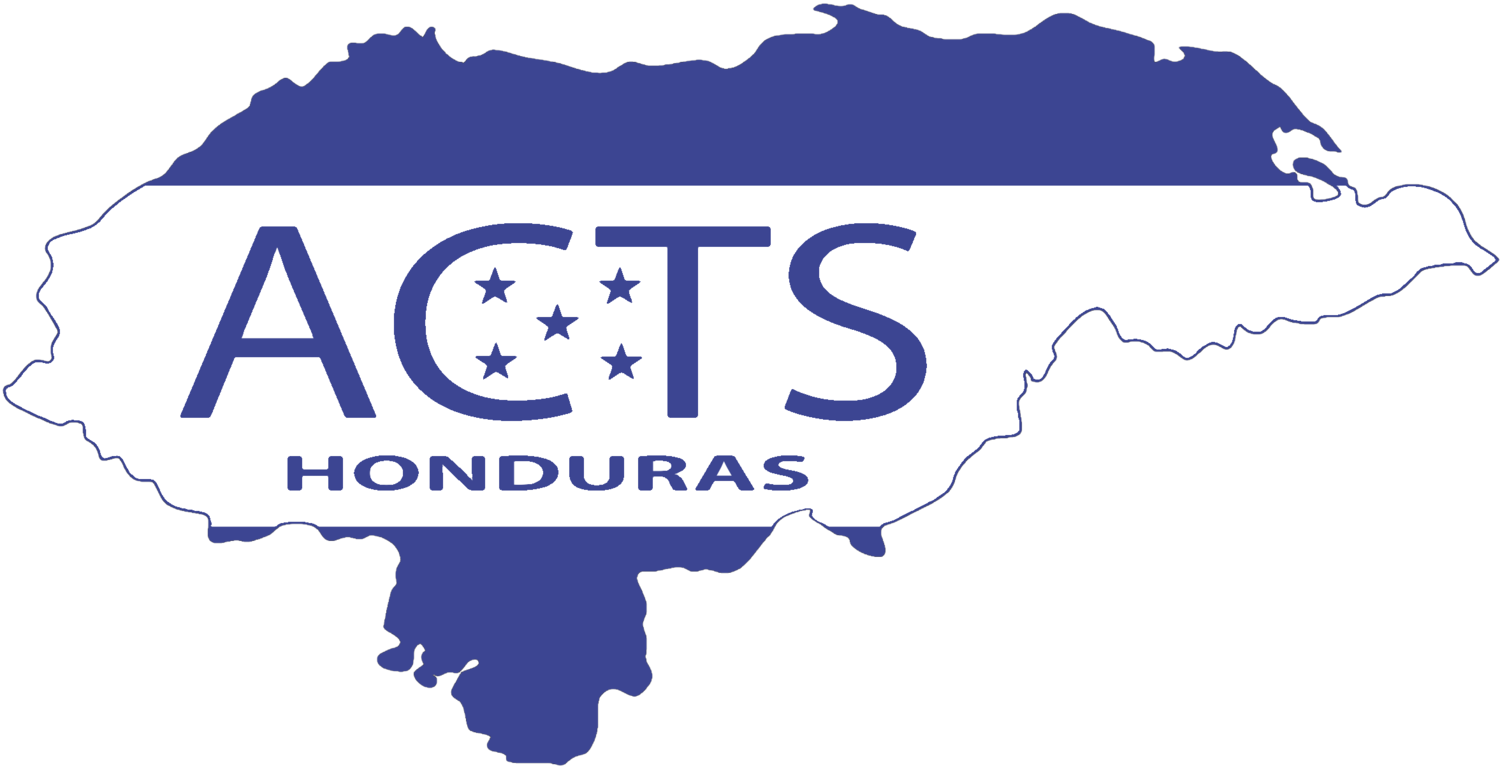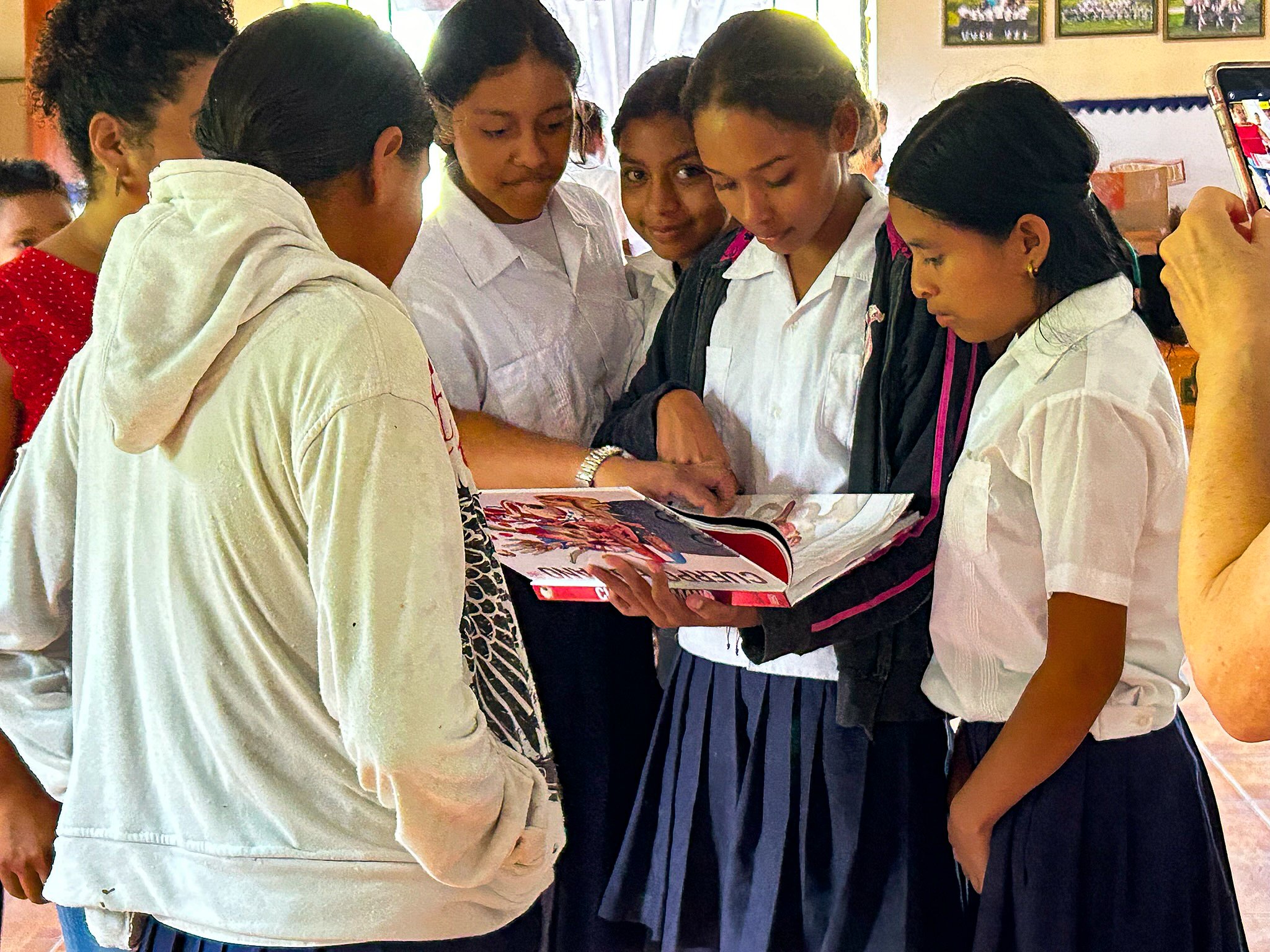
Increasing scope and breadth of local education
ACTS’ partnership with local leaders and our generous donors has afforded us the opportunity to make education broader, more inclusive, relevant, and exciting for ALL AGES.
Educational Programs
Selected WINS circa 2024:
Free regional “colegio” (high school)
Significant recruiting of indigenous teens to the colegio
Free English classes for regional teens and adults
Free computer classes for regional teens and adults
Free teen health education course for 72 teens in 2024
Two local libraries with $8,000 in new books in 2024
Free infant care training course for new mothers
Free training in regenerative agriculture for regional farmers
Free training and equipment to women starting home gardens
ACTS’ goal in increasing the scope and breadth of local education is to improve quality of life and employment opportunities. In a recent survey we learned, on average, farmers in the area have had just three years of schooling. Today, a job in the formal economy of Honduras requires a high school diploma. ACTS has been committed to quality education with access and a pathway to a high school diploma.
Honduran elementary schools are joint ventures between the government and each community. If a community can construct a school building and fill it with children, the government will provide a teacher and their salary. Everything else is up to each community and where most communities have nothing to spare, they cannot enrich the educational environment. Moreover, most residents have never seen anything different. Many children drop out before 6th grade.
ACTS enriches elementary education by providing in-school pediatric dental screening and treatment, hosting a library that is a popular destination for school field trips, repairs to school buildings, and stocking picture books, early readers, and elementary-appropriate reference materials in each school.
Several years ago, when two hurricanes struck in a two-week period, ten schools were badly damaged, and ACTS provided $10,000 in grants to cover materials for repairs to roofs and other necessities as prioritized by local leaders.
Reopening the local high school. ACTS took on reinvigorating the school after a 3-year shutdown during the pandemic; it was an unprecedented challenge. ACTS made it an all-hands priority and in collaboration with a new and comprehensive local Education Committee used creativity, enthusiasm, and problem solving techniques to build a recruiting program staffed by local leaders. Their dogged efforts repopulated the school and together we managed to restore and improve the campus, add hundreds of new books to the library, and install appropriate furnishings and hygiene facilities.
Our first step was to make the colegio a regional school with more access to more children, especially the most forgotten indigenous teens from distant mountain villages. Coming off a 3- year pandemic shutdown, the colegio had a mothballed physical plant and the space to accommodate up to 100 students. Think Like a Kid was our motto and we made school exciting. With our help, the El Rosario Education Committee filled classrooms by extraordinary outreach to remote villages.
We made school fun. We took the opportunity to make school and learning exciting every time we enriched the curriculum and school experience. In 2024, we added 700 new books to the libraries, provided teachers with supplies for displays and learning materials, completed a 4-month teen health learning program (‘Taking Care of You’), and engaged community members in school pride.
A colegio diploma is the pathway to the formal economy. Unemployment and low wages are rampant in Honduras. To compete in the job market, candidates must demonstrate they have a colegio diploma, even for a simple factory job.
We believe in lifelong learning. Years ago, the general belief in our catchment area was that learning happened in school and school was for little kids. Today, people of all ages are interested in learning to fill gaps in their knowledge.
Being bilingual opens doors to opportunities. The ability to speak English is a notable plus for job seekers. We start with the elementary students and they are enthusiastic about singing, stories, and practicing in loud clear voices.
Computer training is a valuable skill in the job market. Everyone is welcome to join a computer course at the regional Community Education Center in El Rosario where the curriculum focuses on the Microsoft Office suite of applications. These courses are free and open to all ages.
Changes in agricultural practices are essential. With the Honduran NGOs COSECHA and FIHA, we introduced regenerative agriculture including use of cover crops, livestock management, seed harvesting, and organic techniques. Passing information from father to son has been the trusted and traditional way to train the next generation of farmers. To accelerate learning about regenerative agriculture, ACTS prioritizes making training open to all ages.
Women are learning to grow vegetables in kitchen gardens. Big-field farming is the purview of males. Five years ago, women established the Hope and Faith Garden Group, advised by Dean Seibert, and began learning from ACTS how to diversify their families’ diets by experimenting with drip irrigation, seed saving, and other systems to grow vegetables in their new kitchen gardens to diversify their diets and learn new skills together.
Taking Care of Moms is an educational series for pregnant women, their own mothers, and newborns. The custom curriculum was developed by an ACTS- organized committee of women including El Rosario’s Nurse Nolvia and a host of U.S.- based medical personnel and educators. Topics such as sleep, crying, supplemental feeding, or nutrition during pregnancy and post-partum are popular and everyone appreciates testing healthy recipes over lunch. Moms receive baby gear such as thermometers and pacifiers and the “ask anything” format for discussions is popular. Taking Care of Moms is funded by the Dr. Margot Krasnoff Fund.
Taking Care of You is a teen health education series. Drs. Cesar Alas and Karla Molineros, early career Honduran MDs designed a lively curriculum and met the challenge of keeping 78 teens engaged in serious topics during eight 3-hour sessions ranging from acne to sexual decision making and tattoos. Students received certificates of participation that will be added to their academic CVs. Taking Care of You is funded by the Dr. Margot Krasnoff Fund.
Teen leadership training in La Fuerza para el Futuro (Force for the Future) provided an annual week of training for teens until the pandemic. The goals were to teach basic leadership skills, to create a web of social connections among teens in many communities, and to spread the ethic of volunteerism. Dartmouth College undergraduates were counselors during the week, and the bidirectional learning encouraged the Dartmouth students to rethink their assumptions about life in a rural low-resource community, while the Honduran teens demonstrated to the community, and themselves, the power of engaged teens.
Over ten years, hundreds of Fuerza teens learned about public health topics ranging from safer use of pesticides to preventing cancer. The learned and then used a variety of techniques including public speaking, writing and performing skits, and developing graphic materials to teach about public health to adults in the community who attended special events and presentations. The teens and the adults were thrilled with the Fuerza’s presentations and accomplishments.
Typical Fuerza deliverables:
To keep children safe from agricultural chemicals, they built and distributed 90 “no-touch” safety boxes for farming families to use for safe in-home storage of toxic chemicals.
A multi-year project to prevent cervical cancer focused on teens learning about condom usage to prevent HPV. With advocacy from the Fuerza, the local clinic provides free condoms on a shelf outside the clinic.
Several years, the Fuerza was on the road to distant communities to repaint K-6 schools.
Educational Facilities
The regional Community Education Center known as El Centro, is the crossroads for extracurricular learning. It was conceived in 2015 when a posse of Dartmouth undergraduates and Honduran teens in our leadership program La Fuerza el Futuro rehabilitated an abandoned school building. With what seemed like grand ideas of a center with a library, classes, and more, El Centro was launched with great fanfare. Since then, ACTS funding and consultation has helped the community to grow El Centro into a lively and useful community resource. Our funding covers salaries for library and educational staff, program expenses, and computer equipment. Importantly, residents from many communities use El Centro’s resources for free.
El Centro’s public library, known as the Doctor Dean Bibliotheca, is maximized weekday mornings with elementary classes using books and online resources. After school, it is the hub for students doing homework with reference materials and internet searches. The Traveling Library is a customized resource supporting individual teachers in remote K-6 schools.
El Centro’s classrooms are home to free courses in English as a Second Language and computer courses about using Microsoft Office. Mid-day, classes are filled with residents of other communities and they range in age. After school, the colegio students leave their school campus and walk to El Centro to continue their learning in English and computers on alternate days. English and computer skills are helpful when competing for scarce jobs in the formal economy.
El Centro provides the only large space for events and celebrations. A community kitchen with gas stove and refrigerator is an important resource for event hosts.
The Colegio campus is a collection of buildings organized around a pleasant grassy area bookended by simple log soccer goals. Six classrooms, a library/media center, kitchen, and restrooms plus agricultural learning space and a kitchen comprise the campus.
The Agriculture Center, funded solely by ACTS, provides educational resources about safe handling of agricultural chemicals and a facility for safe storage. Located centrally, the facility is used by farmers who own land and the many who work for them as day laborers. As a result of ACTS’ educational interventions, now farmers store their chemicals safely at the Center and pick them up in the morning on the way to the fields. When they return them, the farmers use the Center’s showers and large sinks to clean chemicals off themselves and their equipment. Before heading home to their families, they change into clean clothes to prevent cross-contamination.

The colegio is part of the SAT educational system for private colegios in Honduras. Our meeting with Blanca Ucles, leader of 17 SAT schools in the department of Yoro, helped us define our goal. Her strongest recommendation was, “Get the parents and community involved. They need to know this is their school, even if they don’t have children enrolled.”

We told the students we were bringing 700 new books. Set loose to enjoy the books, they sank into the pleasure of a brand-new top-quality book. The teachers were thrilled too; one had a firm grip on a gorgeous full-color chemistry book and said, “Science is my thing.” This purchase was made possible by a generous gift from the Zondervan Foundation.
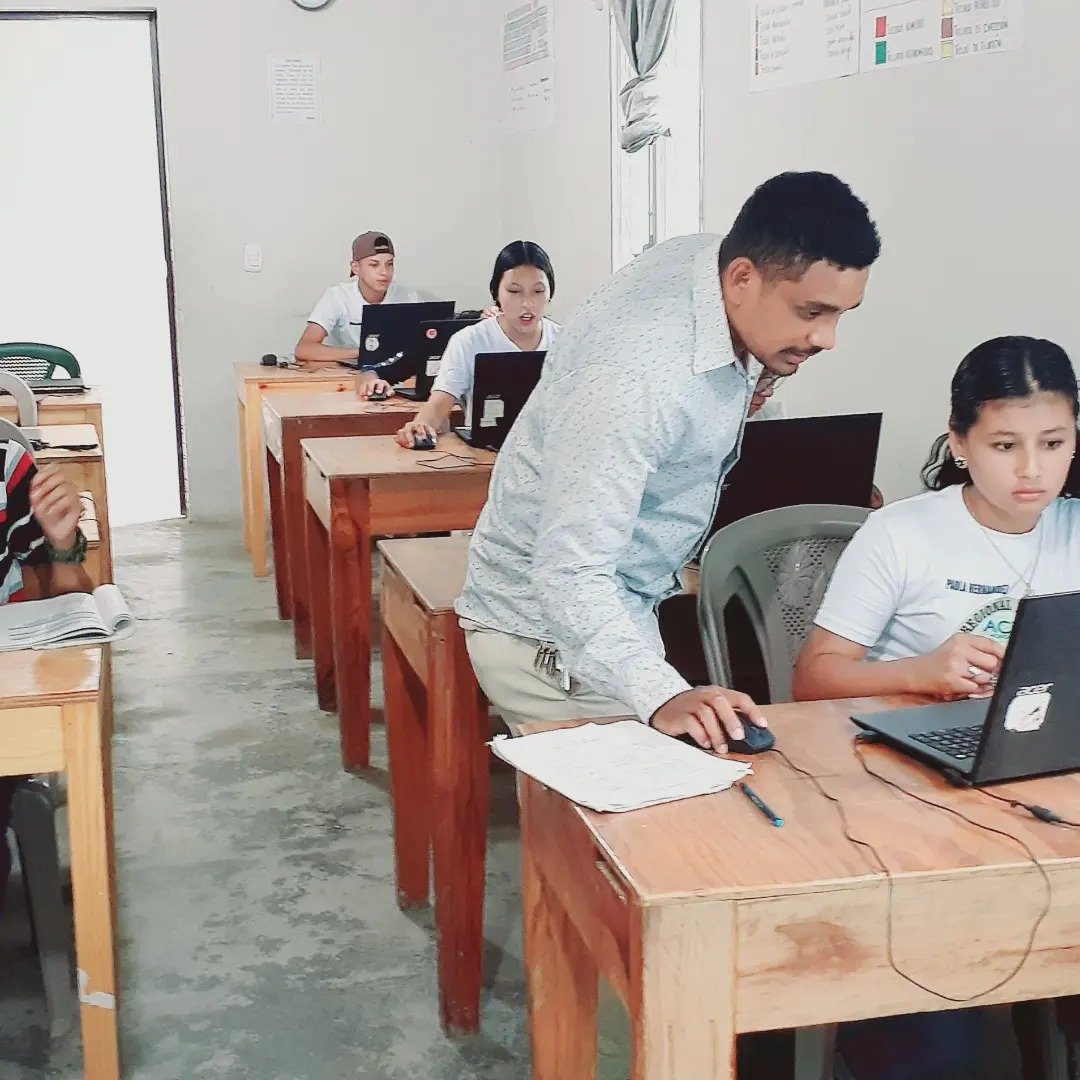
At the Community Education Center in El Rosario, ACTS-funded computer classes are free to everyone. Teacher Yorlin Castro manages the classroom activities and does most of the computer repairs. In 2024, ACTS replaced a third of the laptops with new machines and will do so again in 2025 and 2026.
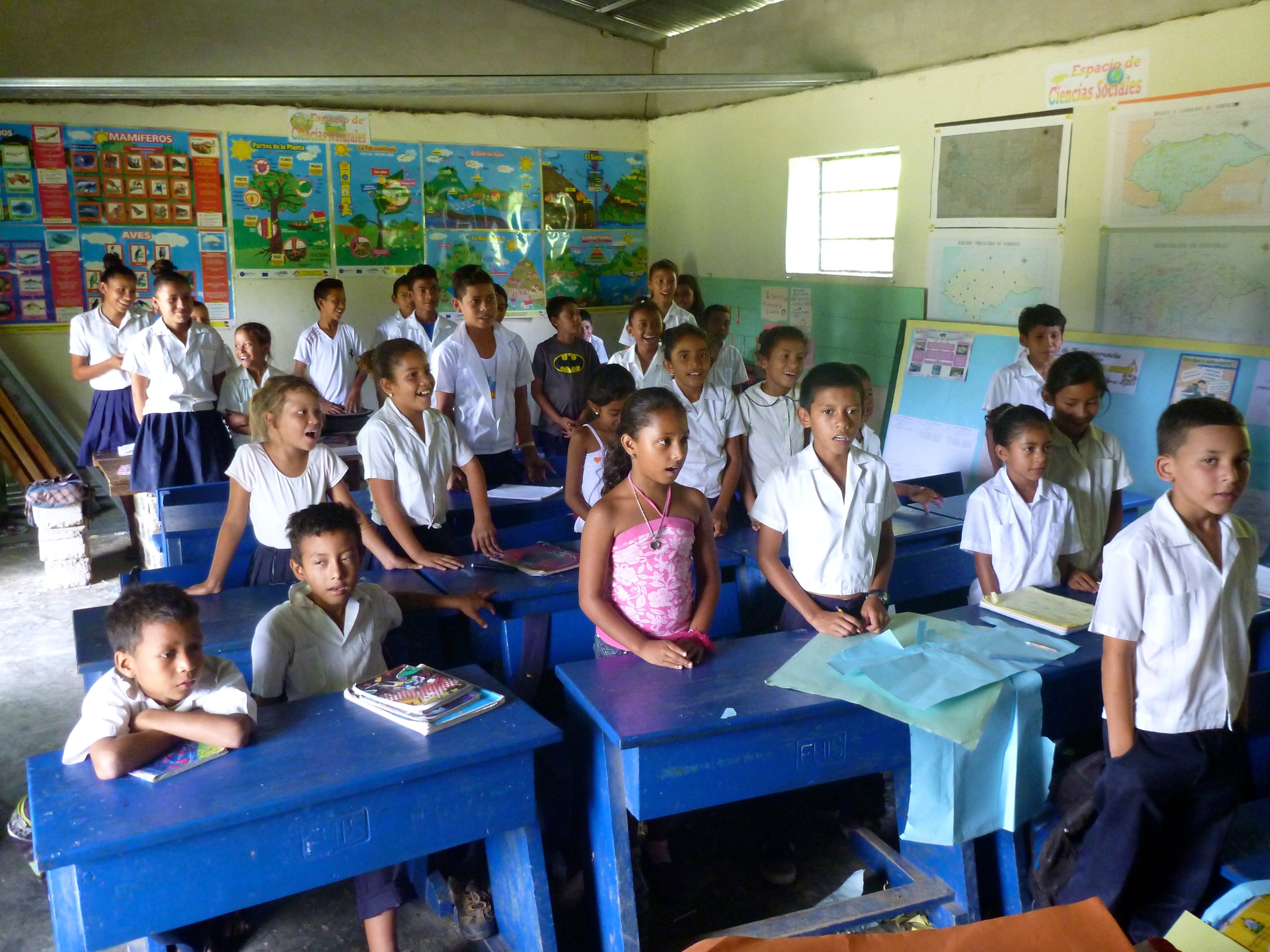
The government funds teachers’ salaries at community K-6 schools, but building construction and upkeep are the responsibility of the community. After two hurricanes in two weeks, several years ago, ten village schools were damaged, and ACTS stepped in to fund repairs including the roof on this school in La Concepcion.

With hundreds of new books, it was a fun meeting with the El Rosario librarians to determine where they should be displayed and how the two libraries would initiate an “inter-library loan” process. One librarian said, “This is nicest collection of books for a school in the entire country.”
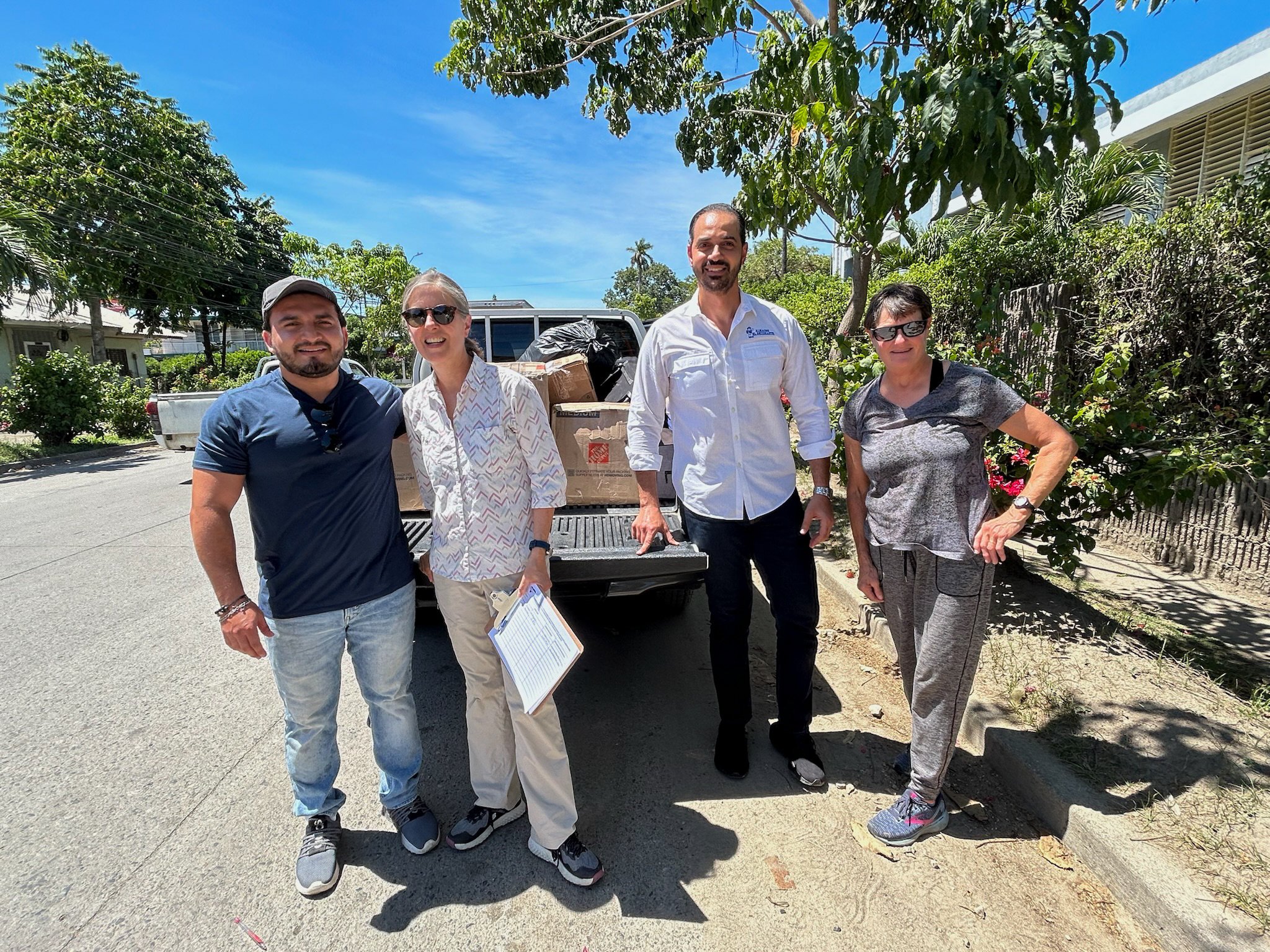
A partnering Honduran educational supply company helped us to transport a generous collection of new books for the two libraries in El Rosario. Here we met by the side of the road to transfer boxes from Ibrahim’s truck to ours.

In the community of Los Planos, the school was in poor shape before the hurricanes and required significant repairs after the storms. Typically, a ‘constructor,’ who builds as his trade, is assisted by local men who volunteer and provide the menial labor. ACTS funds the materials and the wages of the constructor.
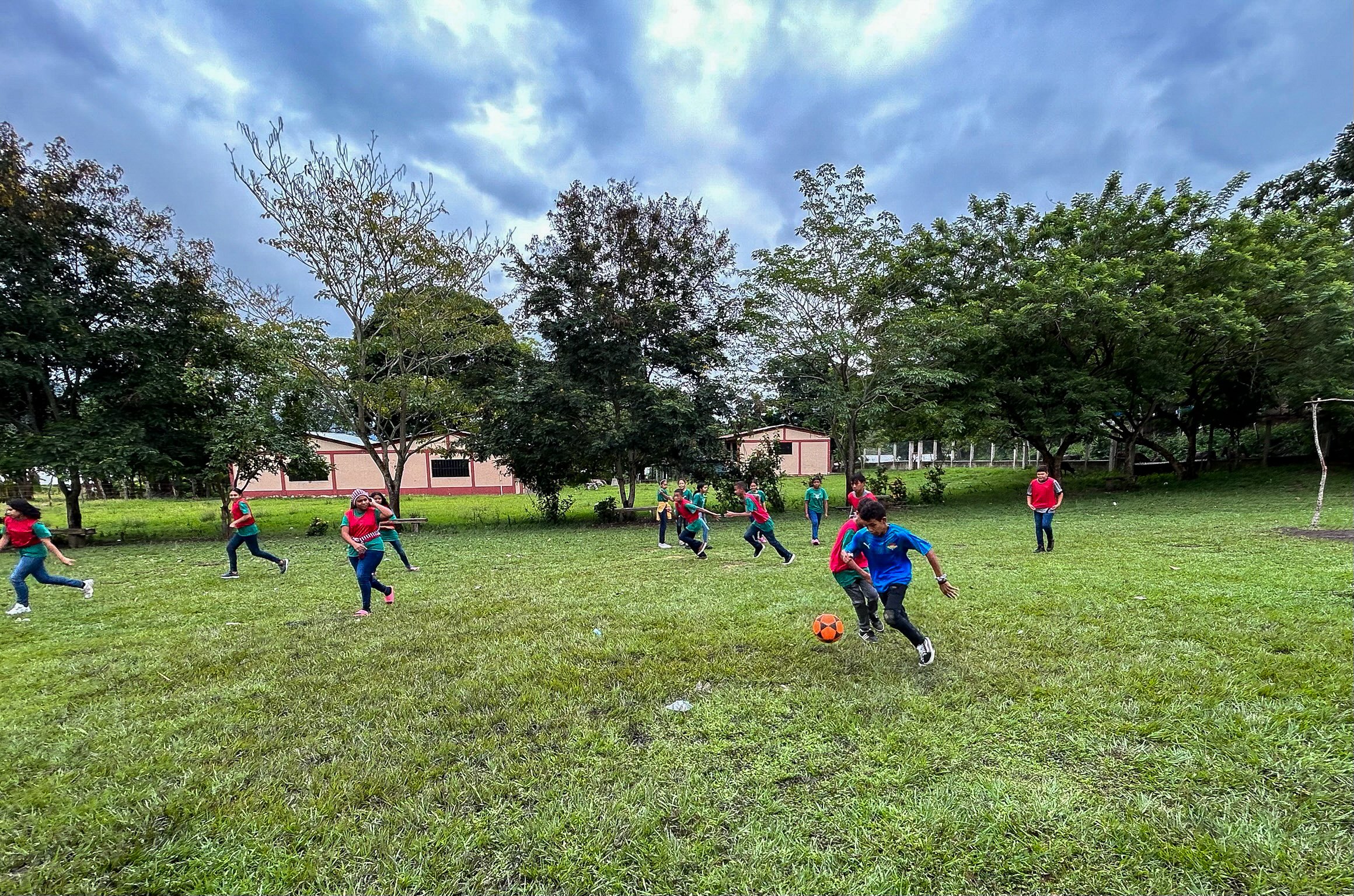
We are making deliberate progress to improve the colegio experience and attract more students by “thinking like a kid,” and augmenting didactic sessions with lively activities and fun.
